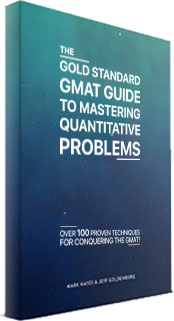
5 Dirty GMAT Secrets
It is no secret that there is a lot to learn before taking the GMAT. If you have been studying for any length of time, you undoubtedly have already unearthed some useful tips and tricks along the way. However, there are a few handy pieces of information that you still probably do not know. While these are not “secrets” per say, they are aspects that are not often publicized by the GMAC. Here are five such pieces of information.
Individual Quantitative and Verbal Scores Matter
How often have your heard this? “Yeah, I struggled on the verbal section, but I made up for it with quantitative.” I personally hear it all the time and while it is true that your combined score matters a lot, it only tells half the story. Business schools see the scores from all of your sections and they want them all to be solid. This means that one section can never truly “make up” for another. Scores are simply not interpreted that way. If you score much lower on one section than the other, schools will notice.
This myth probably became popular because so much of the reporting that we see focuses in on the combined score. Schools report scores this way because it is both easier to compile and to report, not because they do not care about your individual scores.
Quantitative Problems are Built Backwards
There are a set number of concepts and underlying mathematical principles that every quantitative problem is built around. Further, when test makers put questions together they start by picking one of these principles and working backwards. What this means is that if you can identify which principle they used, you can quickly unravel the problem. This is why we recommend drilling yourself on ratios, arithmetic, geometry, patterns, and algebra in addition to important strategies used to solve question types.
Complex Verbal Vocabulary is Complex for a Reason
I often hear the advice that the GMAT likes to hit testers with a deluge of higher level vocabulary in an attempt to frustrate and overwhelm you. While this may or may not be entirely untrue, there is a method to the madness. Tough vocabulary is used as a means to make a question’s context clear and specific. Instead of drowning in all of the letters, focus on the underlying message. If it helps you, simplify the vocabulary in your head as you go along. GMAT vocabulary is not used solely to trip you up. It is usually there to draw attention to important facts that test makers thought needed clarification.
Time management is the name of the game
There is a reason why the GMAT is timed. GMAC wants to see not only how you do under pressure, but also how well you are able to manage your time between multiple questions. I am not exaggerating when I say that half of your score comes from learning how to effectively manage your time. Mastering content and memorizing strategies is great and will go a long way, but it does not matter how well you know the material if you run out of time before you even get to see the next question. Time yourself constantly as you study.
It is Okay to Take the GMAT More than Once
There is a huge stigma among testers that retaking the GMAT dooms your chances to get into good schools, but let me tell you that this stigma does not exist with admissions boards. Business schools know that you cannot judge someone based solely on the performance of one day. Everyone has bad days and they understand this. If you score poorly the first time that you take the GMAT, do not give up on your dream school because they have not given up on you either.
Do you have any inside knowledge you want to share? If so, we want to hear from you. Drop us a note in the comments section.

